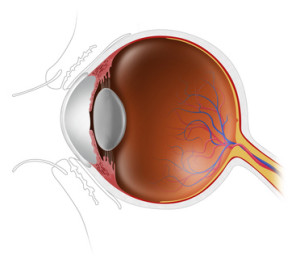
There are five different health care professionals that look after our
eye health - Ophthalmologist, Optometrist, Orthoptist, GP and Dispenser and they all have different role to play in keeping our eyes healthy.
Ophthalmologist:
An ophthalmologist is a medical doctor specialising in eyes.
Their various specialties might be:
- surgery (cataract)
- diseases glaucoma and literally hundreds of others from infections to cancer and
- ageing conditions like macular degeneration treatment, injections and lasers
Some ophthalmologists are specialists and concentrate only on such condition, i.e., Glaucoma only, retina specialist, Lid and cosmetic surgery, if medically valid.
It takes 12 years to qualify, including a full medical degree (6 years) 2 years post graduate medical work, GP/ hospital etc, 2 years ophthalmology school and then 2 more years under a currently registered ophthalmologist.
Optometrist:
The Latin meaning for optometrist is to measure eyes.
Optometrists are responsible for measuring the eye health and complete the following tests:
- Refraction/ glasses Rx, measure acuity
- Pressure testing - if high would refer to an ophthalmologist
- Retinal inspections with a dilated exam, ie macular, optic nerves, etc and any abnormalities will mean referral to an ophthalmologist
- Check general ocular health, i.e. tear film integrity, eye lid hygiene
Some optometrists can now prescribe eye drops for infections etc
Whilst optometrists can detect various diseases this would then need the backed up opinion of an ophthalmologist to treat and manage.
Basically optometrists are the front line for regular checks for any abnormalities in their eyes. Optometrists are a screening tool for the ophthalmologists, so they have fairly accurately pre-diagnosed patients visiting their clinics.
The other main role of the optometrist is retraction, accurate correction of vision to as good as the eye's physiology will permit. Then writing that prescription in records for a dispenser.
Optometrists also work with Pxs who want contact lenses and management. Some optometrists branch out into paediatric optometry, and double vision etc. Many group together to cover most common reasons of referrals from optometrists and GPs.
To become an Optometrist it takes four years training and a further year to complete the non therapeutic drugs training.
GP
A GP may play a part in general screening with letter chart, managing most common eye infections, prescribing therapeutic and comfort related eye drops, but only a very few are any good with posterior exams as they don't practice enough and it usually needs a dilation which takes time. GPs often have had very little specialised training in eyes beyond a normal medical degree, which is understood to be reasonably short and basic.
Orthoptist:
An orthoptist specialises mostly in ocular muscles and nerve issues like diplopia (double vision) turns in the eye, and probably other related issues like paediatrics/ developmental issue.
- eye exercises, patching children with a lazy eye.
Ophthalmologists used to employ them to do refraction because its cheaper than hiring an optometrist. There is only one listed in Adelaide.
Nowadays an orthoptist rely on Rxs from an optometrists and since they are not trained for a full eye test they can't work in shops, as refraction is only part of a full test. An orthoptist is the physiotherapist of eyes.
Optical Dispenser:
In a shop situation dispensers will get Pxs ready for tests, measure glasses etc. They
are trained to understand optical prescriptions, advise clients needing glasses on options, frame selection and fitting perimeters, i.e. PD and heights etc. Many dispensers now working in shops are not qualified dispensers.
A Dispenser repairs, delivers and adjusts glasses. They explain the care and maintenance of glasses.
A qualified dispenser as part of their training has completed an Optical Mechanic course, which teaches the making of a lens from scratch including grinding lens powers in machine called a generator, polishing and then edging to frame etc. They are also trained in lens tinting, multi-coats, inspecting and checking finished glasses against the Rx.
The dispenser course is two years.
 There are five different health care professionals that look after our eye health - Ophthalmologist, Optometrist, Orthoptist, GP and Dispenser and they all have different role to play in keeping our eyes healthy.
There are five different health care professionals that look after our eye health - Ophthalmologist, Optometrist, Orthoptist, GP and Dispenser and they all have different role to play in keeping our eyes healthy.
